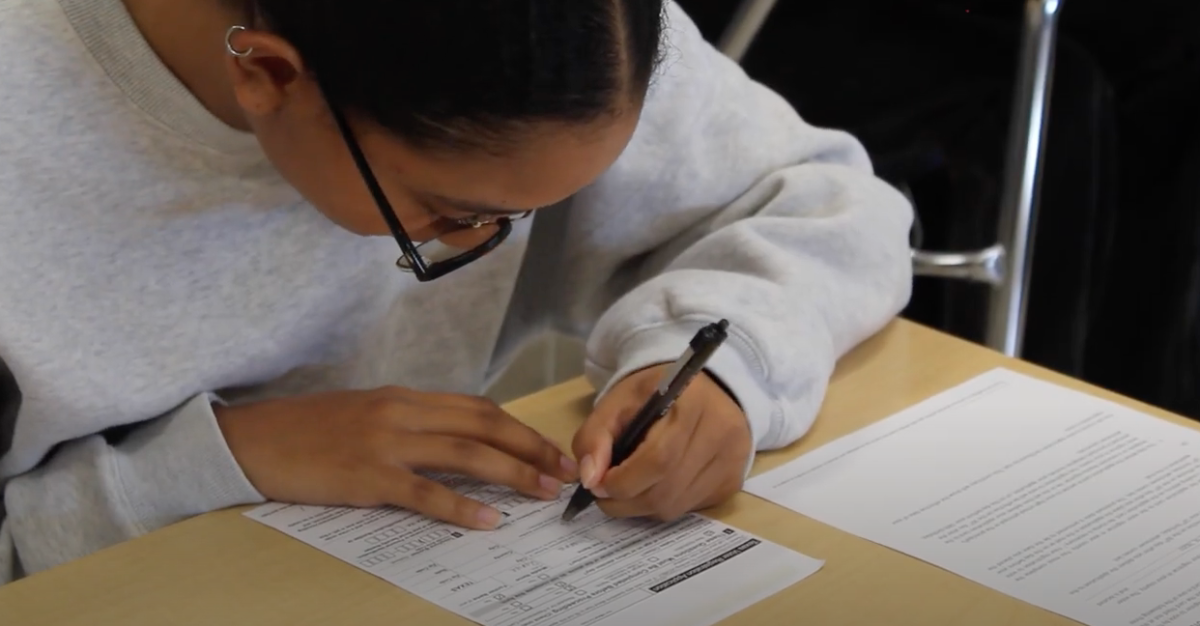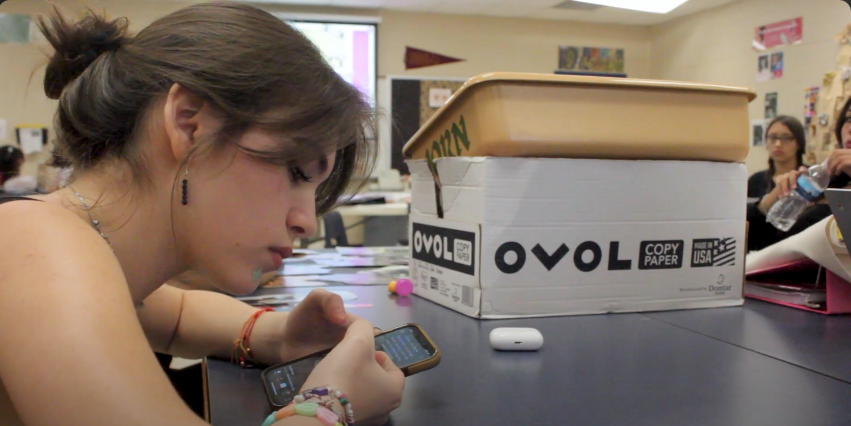By Victoria Vogler | Staff Writer
According to the American Diabetes Association, 0.22% of Americans under the age of 20 suffer from diabetes. This number includes 186,300 children and adolescents. A life-changing diagnosis might rattle some, but a very bubbly Victorya Ross recalls the day she was diagnosed.
“I was fifteen. It was July 8, 2008. That’s when I was diagnosed,” Ross said.
Living with diabetes is a challenge to all, let alone a child, but Ross has approached her lifestyle change with a positive outlook.
“I have to take 4 shots a day: in the morning before I eat, before I eat lunch, before I eat dinner, and before I go to bed,” she said. “That’s really how it affects me. I have to check my blood sugar so I get little calluses on my finger. It’s not that big of a deal, but I have to check it constantly.”
The constant monitoring of blood sugar is just one aspect of a diabetic lifestyle. For most people, a bruise or cut is nothing to be concerned about. But diabetics have to take these minor injuries more seriously, because their healing process moves more slowly than that of the average person.
“I have to be very careful when I get cuts or bruises and scrapes, especially on my hands and feet, because if it gets infected, diabetics don’t heal as easily as people do,” Ross said. We heal very slowly and because of that, if something on my foot gets infected and it doesn’t heal correctly, that part of my foot would have to be amputated. [The same goes for any injury] on my hand or my leg, anywhere. It’s just very serious.”
AP Mitch Brown was diagnosed with diabetes this summer. After his initial reaction, he has developed a different attitude towards his condition.
“[At first, I reacted with] panic, fear, terror, denial. [I was] argumentative. I was a jerk at the doctors office; I threw a fit,” said Brown. “[But now] everything I do is different.
Though a diabetic undergoes changes in lifestyle, some are for the better. Because diabetics must watch their weight, blood sugar, and diet, counting carbs rises to a new importance. This can have a profound impact on one’s health.
“Once I went through all those phases in about 20 minutes of denial, anger, all the way to acceptance, I listened to what the dietitian told me. I changed everything I eat, I changed my exercise, I’ve lost 40 pounds since June 14,” Brown said. “I threw all my clothes away, bought all new clothes. [I’m] much happier. I don’t sleep like I used to. I used to eat a meal and fall asleep because my sugar levels would get so high that it basically makes you pass out. All of those things. Everything about me has changed.”
Genetics may contribute to the development of diabetes, but diet is also an important factor to consider. The consumption of too many carbohydrates, fats and proteins can prevent the pancreas from secreting insulin properly.
“[Diabetes] is where your body doesn’t produce insulin for your body. When you do too much exercise, when you don’t eat, like, your blood sugars will go low and you need to put something in your stomach. Or if you eat too much, it doesn’t produce insulin to bring you down, and you have to take insulin to pull you down,” junior James Kotzur said.
Though he, too, is diabetic, Kotzur views his condition as having little bearing on his lifestyle. Brown even views the disease as a positive change.
“People are always like, ‘Oh, I’m sorry’,” Brown said. “But its the best thing that ever happened to me. I’m so glad it happened.”







